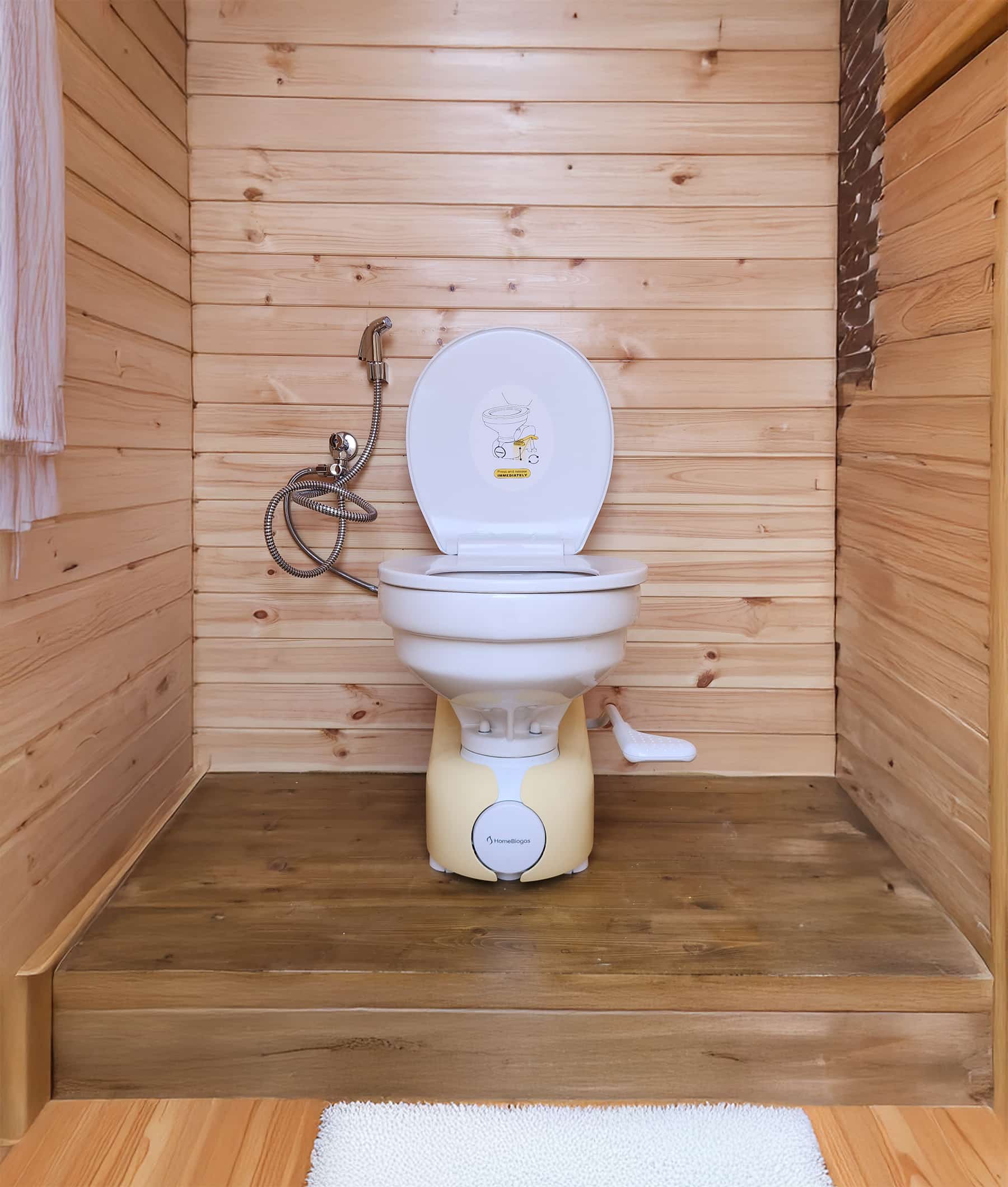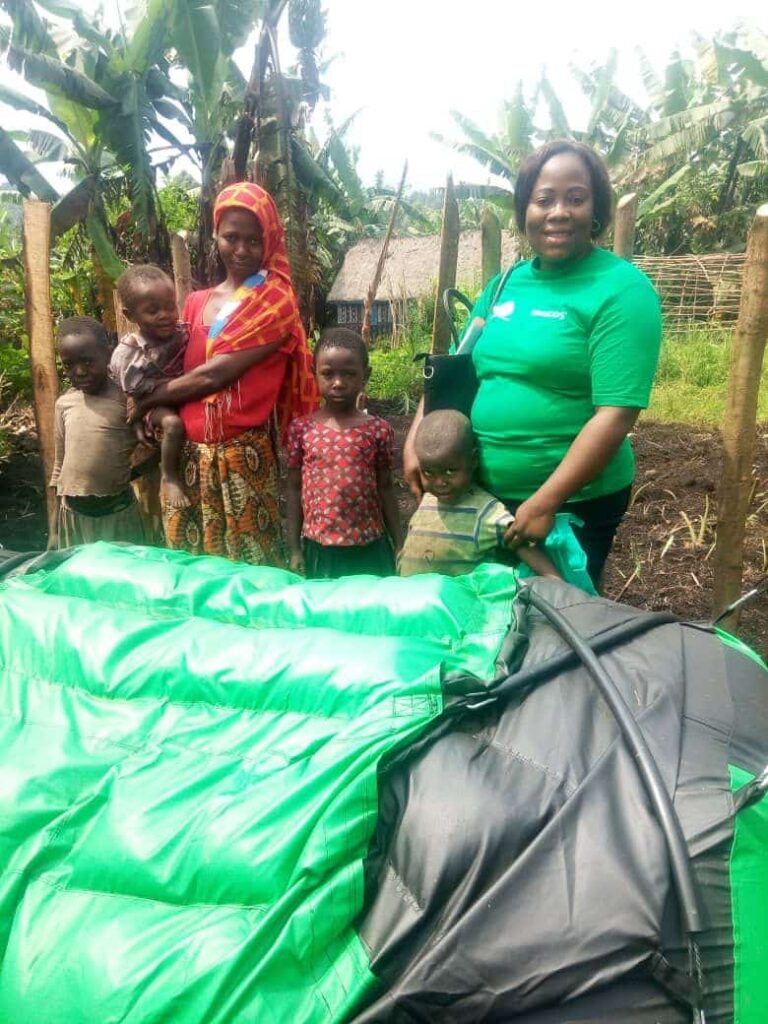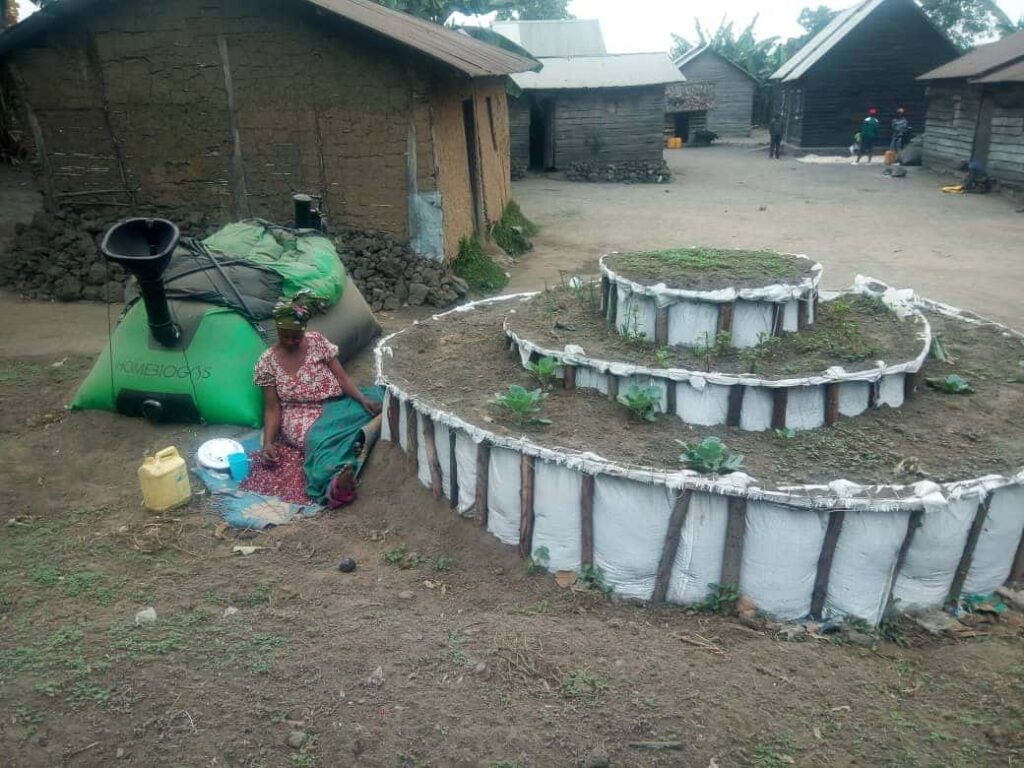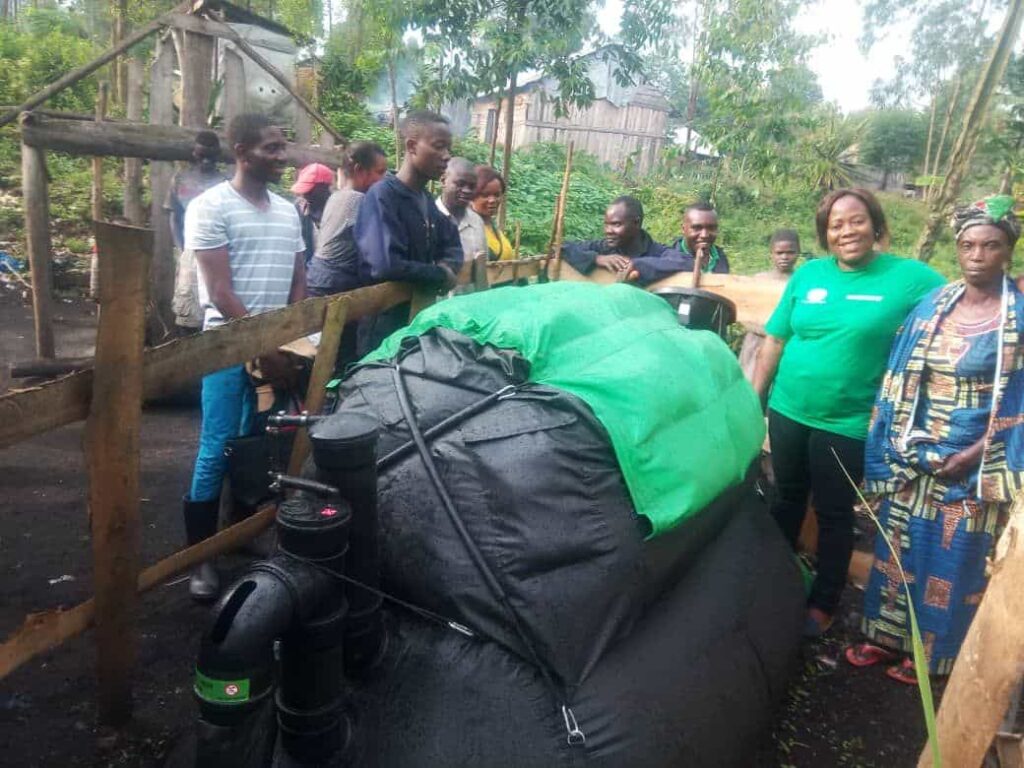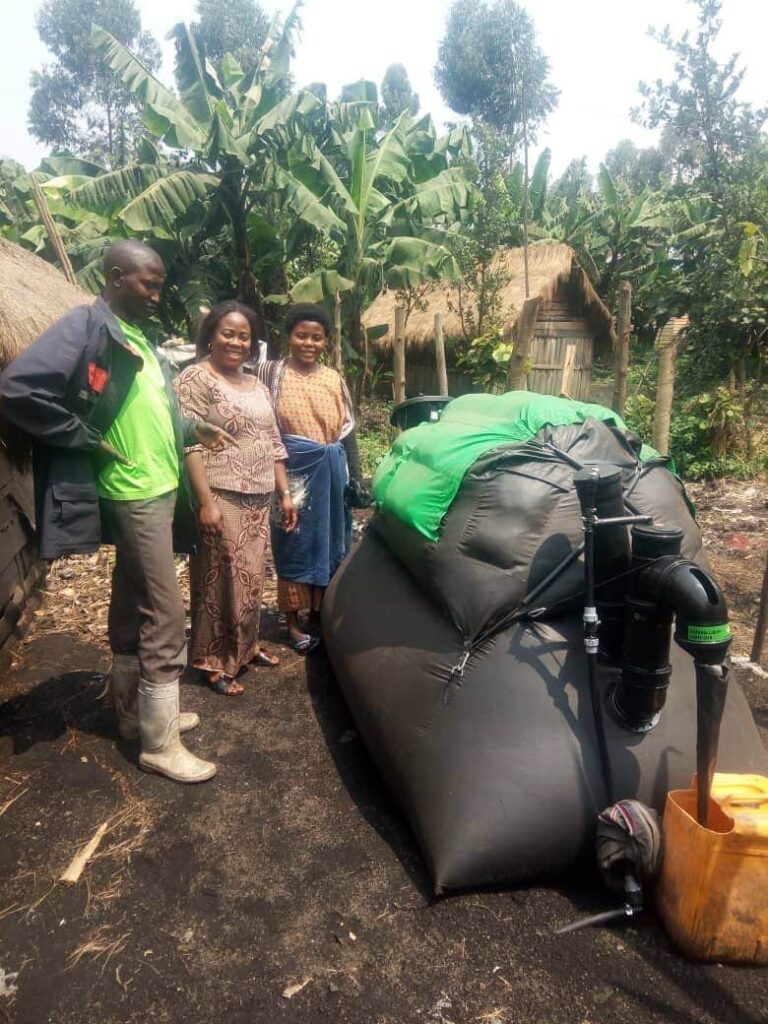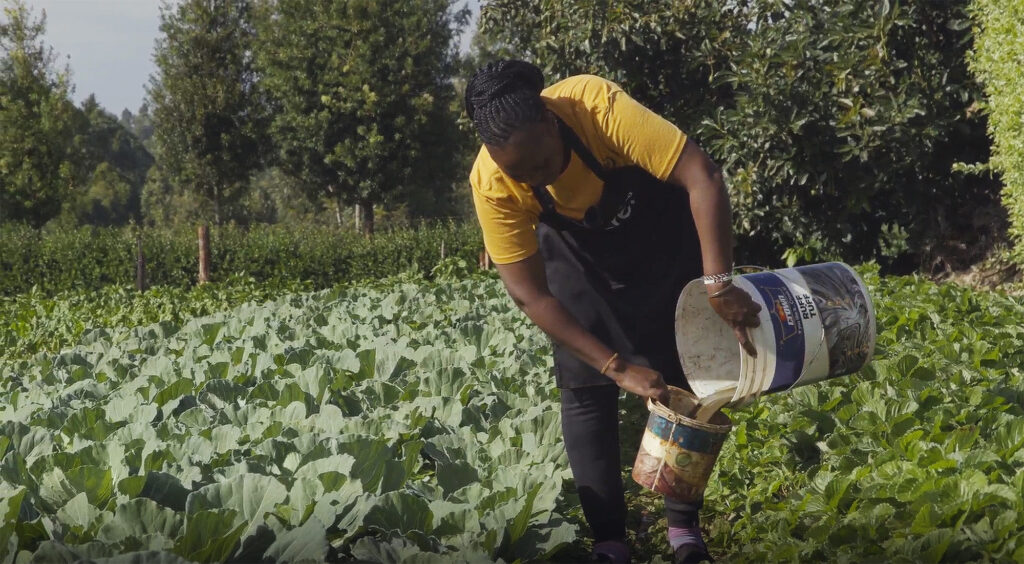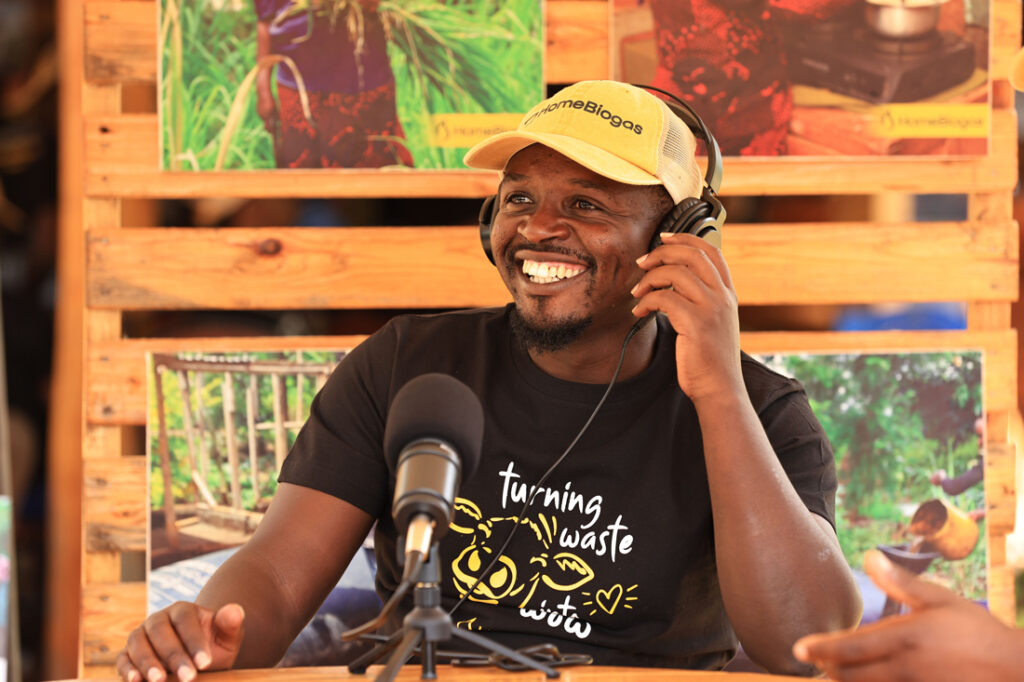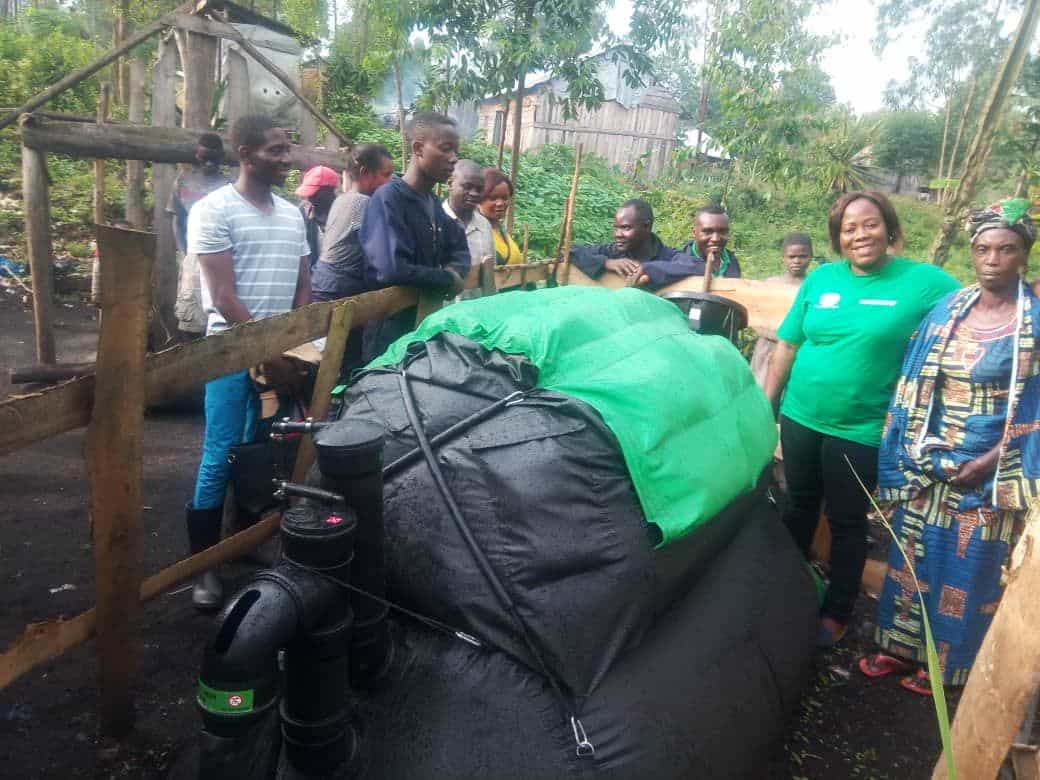
World Wildlife Fund WWF, the world’s leading independent conservation organization, is actively working in the Democratic Republic of Congo DRC, the most biologically diverse country in Africa, and one the most important hotspots of biodiversity in the world. In a project called “Protection of Communities, Indigenous People and Their Tropical Forests in Democratic Republic of Congo” 39 solar kits and HomeBiogas biodigesters were delivered to households in the city of Sake / Masisi in the DRC.
The families that received the biodigesters live in communities that depend on the forest for among other things, fuelwood for cooking. The dependency on the forest has led to its decline and severe deforestation. The WWF-DRC implements activities to tackle illegal forests exploitation and also while also supporting communities so that they can develop and thrive sustainably. As part of the project, WWF supplied the biodigesters as an alternative to using fuelwood, in the aim to reduce the consumption of wood energy.
The WWF staff and community members installed the HomeBiogas systems over several months from March-September 2019. HomeBiogas systems produce cooking gas by the decomposition of organic animal or vegetable waste in the absence of oxygen. The organic waste decomposition and gas production are done by anaerobic microbes, and the process is 100% natural.
Charcoal together with firewood account for 97% of the energy consumption in the North Kivu province of the DRC. Neither electricity nor gas have been readily accessible. Having only used charcoal or fuelwood for cooking, the households that are part of the project are adjusting to using the biogas fuel, which burns cleanly and is much safer to use. They are also finding value in the liquid fertilizer that they system produces, which goes towards growing the kitchen garden.
‘’My family is very happy and thanks WWF for being among the beneficiaries of this project. “With the solar panel I no longer use my oil lamp since I have light in my house. The biogas stove cooks quickly and my wife has significantly reduced firewood and charcoal frequency use for cooking.’’ – Mr. Joseph Kiana, head of household in the village of Luhonga locality.

